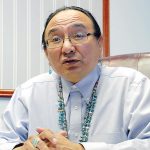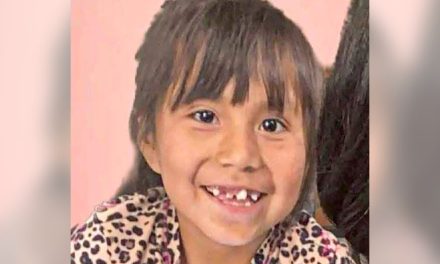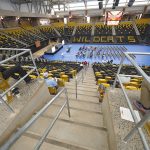
Letters | Every vote counts
Every vote counts
In the Navajo Times article titled, “192 Navajo Nation candidates disqualified from ballot,” Donovan Quintero explains that the Navajo citizens who are running for grazing officials, chapter house leaders, educational board positions, and other offices within the Navajo Nation could not be permitted to cast ballots in the general elections.
The reason for this controlled rejection is a recently applied tribal law was approved, which requires all candidates to submit their needed campaign funding and spending reports. Once they miss the deadlines, they risk disqualification and harsh penalties, or potential jail time. Candidates and their supporters are urged to ensure that the new guidelines are being followed.
Although I agree up to a point, I cannot accept the overall conclusion of candidates facing not only disqualification from the election but also hefty fines and potential imprisonment. Things are changing every day, and new laws are being developed.
The Navajo Nation Council takes a step toward enhancing electoral integrity and transparency with stricter reporting requirements. When running for chapter president, school board member, or a grazing official the candidates need to be able to receive opinion from the people, as well as make sure that the changes suit the priorities and requirements of the Navajo Nation. If the candidate fails to comply with the reporting requirement for qualification after a campaign end date, it is determined by the administrative. Everything has to be refunded or used to pay off the individual’s campaign debts.
In conclusion, I think the “Election Administration” should think about the financial situation that these candidates struggle with. Many of the local citizens don’t have nearby shopping centers, good bus routes, or electricity and running water so they have greater expectation and want things to change around the community.
We also need to remember those candidates put a lot of effort into earning their positions. Practicing language and culture, scheduling their availability for meetings and events, and some that interact with stakeholders and people of the community. Just so the people have a better insight of how things will be properly viewed and handled. Every vote counts for our nation leaders.
Janae James
Chinle, Ariz.
Fraudulent reports lead to penalties
In the Navajo Times article titled, “192 Navajo Nation candidates disqualified from ballot,” by Donovan Quintero, he brings attention to a new tribal law passed by the Navajo Nation Council.
Under a new legislation, CJA-08-24, mandates all chapter house official candidates submit their campaign expense reports. Failure to submit a report, exceeding expense limits (recently raised from $1.50 to $2 per registered voter), or submitting fraudulent reports could lead to several penalties. These penalties include disqualification from the upcoming election, fines, and possible imprisonment. The Navajo Board of Election Supervisors are entrusted to enforce this legislation.
Though I concede that Navajo Nation candidates should disclose an expenditure report of their campaigns, I still insist that the legislation should not have an expense limitation for Navajo candidates running for office. The disqualification of candidates for exceeding the expense limitation, which is now $2 per registered voter, would significantly take away from the Diné peoples’ choice for selecting who would best serve, represent them, and address their needs.
In the article, it states, “The disqualification of nearly 200 candidates could significantly alter the landscape of the upcoming election, raising questions about representation and voter choice within the Navajo Nation.”
By taking away voters’ choice of candidates, which is heavily relied upon within the Navajo government, this could potentially cause voters to shy away from the polls or view the upcoming general election as unfair or biased. Majority of the candidates running for office rely mostly upon their own income and support from family, other supporters, and donations.
With that said, I believe that by revising the new Navajo Law CJA-08-24, with an emphasis on expense limitations for Navajo candidates’ campaigns, it may provide a solution to avoid poor poll turnouts and allow the people to exercise their voice and be heard. The much-needed revisions may also help provide some leniency for the candidates and allow them to continue their campaign as opposed to being disqualified as the election nears.
Overall, I agree that Navajo candidates should provide an expenditure report, but the legislation should be revised specifically for the expense limitations to be expanded or removed entirely.
Rochelle Francisco
Chinle, Ariz.
Voting a constitutional right
In the Navajo Times article titled, “Wingbeat 88 empowers Navajo voters through kinship organization,” Donovan Quintero explains how Wingbeat 88 is operating, which is a non-profit organization that focuses on kinship organizing. The organization is dedicated to ensuring that individuals are informed about their voting rights and has the resources needed for Navajo people to participate in elections.
A concerning factor is if Arizona Republicans get their way it could affect 40,000 Arizona voters, including Navajo voters from the other 22 Arizona tribes, many service members, students, and Native Americans who registered without a birth certificate.
Wingbeat 88 empowers Navajo voters through kinship organization, ensuring that Navajos are informed about their voting rights and equipped with the resources needed to participate in the election. Because as Wingbeat 88 may not be aware, recent studies have shown that this organization has updated 8,900 Diné citizens’ registration information and I think much of our youth do not care enough for voting, but in the long run this will affect us. It can affect us when it comes to water rights, electricity to home site leases, and grazing rights.
Already, most elders cannot vote because they were not born in a hospital but received a birth certificate like most of Arizona voters and residents. Then there is the issue that Navajo Nation has two different polling locations, which I think will create obstacles for people with limited time and elders who cannot drive or have reliable transportation to access polling locations.
Navajo Nation President Buu Nygren states that, “Elections must be fair and accessible for all. Voting is a constitutional right, and we should strive to include more citizens in this vital civic duty, not limit their participation through restrictive measures.”
In addition, I know how important it is for me like the elders to be able to cast my vote.
Once I was approached by Kathryn Begay doing a survey for Wingbeat 88 and I asked, “How many people do register to vote?” She replied, “One day there will be two people, some days it will go up to 10.” I think she says this to spread the word for more people to vote.
In conclusion, I think it is important for us all to be able to vote. A vote can let our chapter houses help us with water, get help with livestock, and the list goes on. I bring this up because voting gives us the benefit of receiving help in all kinds of ways. If we can’t vote then we have no voice.
Erick Claw
Fort Defiance, Ariz.
Elections difficult for Navajo
In the Navajo Times article titled, “Wingbeat 88 empowers Navajo voters through kinship organizing” by Donovan Quintero, he reports that the issue of voter registration is critical to the Navajo Nation.
Elections are difficult for the Navajo Nation because individuals must travel long distances to vote. Many factors can make voting a hassle such as geographic barriers, lack of transportation, and financial limitations. This matter revolves around a 2022 law that mandates Arizonans provide “documentary proof of citizenship” to vote. But Wingbeat’s mission is to empower Navajo voters and support them in navigating that complicated registration process.
Wingbeat’s aim for voting on the Navajo Nation will help our Diné people gain knowledge through the process. This organization is beneficial as it sheds light on those who know less about voting. Many have difficulties traveling from their home to two different polling areas that are scattered around the Navajo Reservation, and most live in remote areas and have trouble driving on roads that are dirt or have too many potholes. Distance makes it time-consuming and immensely problematic for many to travel to vote as it can be costly, especially with other aspects like vehicle problems or no fuel that limit citizens to polling areas.
In the article, Donovan Quintero says, “Several factors contribute to the challenges faced by Navajo voters in this process such as geographic barriers.” These obstacles continue to set a drawback for Navajos to participate in the voting process.
Other elements such as cost to travel long distance, access to reliable transportation, and inadequate roads make it a safety risk. With these issues, many have found it hard to travel to two locations resulting in missed opportunities or long waits to vote.
Ultimately, the people of the Navajo Nation need reliable support to travel and vote. And for citizens to participate in the voting process, the Navajo Nation must work with Navajo Transit and other transportation agencies to help transport citizens with the chance of not paying a cent.
I think this will help increase the amount of people on the Navajo Reservation to vote and gain knowledge about the political and registration process. It’ll ensure that Navajos will arrive safely to the polling areas and this will resolve the confusing procedure of voting. As a nation, our people will have their voices heard and will empower their rights to vote.
Aryissa Hale
Window Rock, Ariz.







 Highway 264,
Highway 264, I-40, WB @ Winslow
I-40, WB @ Winslow